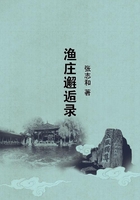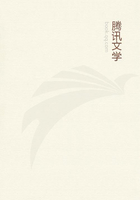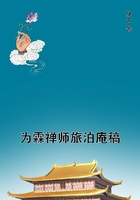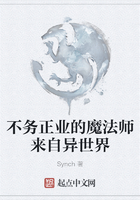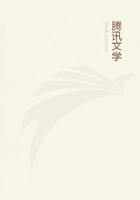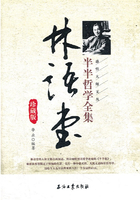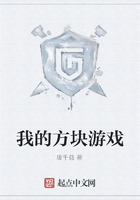The human concept of Sin has had its uses no doubt; and our special invention of a thing called Punishment has also served a purpose.
Social evolution has worked in many ways wastefully, and with unnecessary pain, but it compares very favorably with natural evolution.
As we grow wiser; as our social consciousness develops, we are beginning to improve on nature in more ways than one; a part of the same great process, but of a more highly sublimated sort.
Nature shows a world of varied and changing environment. Into this comes Life--flushing and spreading in every direction. A pretty hard time Life has of it. In the first place it is dog eat dog in every direction; the joy of the hunter and the most unjoyous fear of the hunted.
But quite outside of this essential danger, the environment waits, grim and unappeasable, and continuously destroys the innocent myriads who fail to meet the one requirement of life--Adaptation. So we must not be too severe in self-condemnation when we see how foolish, cruel, crazily wasteful, is our attitude toward crime and punishment.
We become socially conscious largely through pain, and as we begin to see how much of the pain is wholly of our own causing we are overcome with shame. But the right way for society to face its past is the same as for the individual; to see where it was wrong and stop it--but to waste no time and no emotion over past misdeeds.
What is our present state as to crime? It is pretty bad. Some say it is worse than it used to be; others that it is better. At any rate it is bad enough, and a disgrace to our civilization. We have murderers by the thousand and thieves by the million, of all kinds and sizes; we have what we tenderly call "immorality," from the "errors of youth" to the sodden grossness of old age; married, single, and mixed. We have all the old kinds of wickedness and a lot of new ones, until one marvels at the purity and power of human nature, that it should carry so much disease and still grow on to higher things.
Also we have punishment still with us; private and public; applied like a rabbit's foot, with as little regard to its efficacy. Does a child offend? Punish it! Does a woman offend? Punish her! Does a man offend? Punish him! Does a group offend? Punish them!
"What for?" some one suddenly asks.
"To make them stop doing it!"
"But they have done it!"
"To make them not do it again, then."
"But they do do it again--and worse."
"To prevent other people's doing it, then."
"But it does not prevent them--the crime keeps on. What good is your punishment?"
What indeed!
What is the application of punishment to crime? Its base, its prehistoric base, is simple retaliation; and this is by no means wholly male, let us freely admit. The instinct of resistance, of opposition, of retaliation, lies deeper than life itself. Its underlying law is the law of physics--action and reaction are equal. Life's expression of this law is perfectly natural, but not always profitable. Hit your hand on a stone wall, and the stone wall hits your hand. Very good; you learn that stone walls are hard, and govern yourself accordingly.
Conscious young humanity observed and philosophized, congratulating itself on its discernment. "A man hits me--I hit the man a little harder--then he won't do it again." Unfortunately he did do it again--a little harder still. The effort to hit harder carried on the action and reaction till society, hitting hardest of all, set up a system of legal punishment, of unlimited severity. It imprisoned, it mutilated, it tortured, it killed; it destroyed whole families, and razed contumelious cities to the ground.
Therefore all crime ceased, of course? No? But crime was mitigated, surely! Perhaps. This we have proven at last; that crime does not decrease in proportion to the severest punishment. Little by little we have ceased to raze the cities, to wipe out the families, to cut off the ears, to torture; and our imprisonment is changing from slow death and insanity to a form of attempted improvement.
But punishment as a principle remains in good standing, and is still the main reliance where it does the most harm--in the rearing of children.
"Spare the rod and spoil the child" remains in belief, unmodified by the millions of children spoiled by the unspared rod.
The breeders of racehorses have learned better, but not the breeders of children. Our trouble is simply the lack of intelligence. We face the babyish error and the hideous crime in exactly the same attitude.
"This person has done something offensive."
Yes?--and one waits eagerly for the first question of the rational mind--but does not hear it. One only hears "Punish him!"
What is the first question of the rational mind?
"Why?"
Human beings are not first causes. They do not evolve conduct out of nothing. The child does this, the man does that, _because_ of something; because of many things. If we do not like the way people behave, and wish them to behave better, we should, if we are rational beings, study the conditions that produce the conduct.
The connection between our archaic system of punishment and our androcentric culture is two-fold. The impulse of resistance, while, as we have seen, of the deepest natural origin, is expressed more strongly in the male than in the female. The tendency to hit back and hit harder has been fostered in him by sex-combat till it has become of great intensity. The habit of authority too, as old as our history; and the cumulative weight of all the religions and systems of law and government, have furthermore built up and intensified the spirit of retaliation and vengeance.
They have even deified this concept, in ancient religions, crediting to God the evil passions of men. As the small boy recited; "Vengeance. A mean desire to get even with your enemies: 'Vengeance is mine saith the Lord'--'I will repay.'"
The Christian religion teaches better things; better than its expositors and upholders have ever understood--much less practised.

